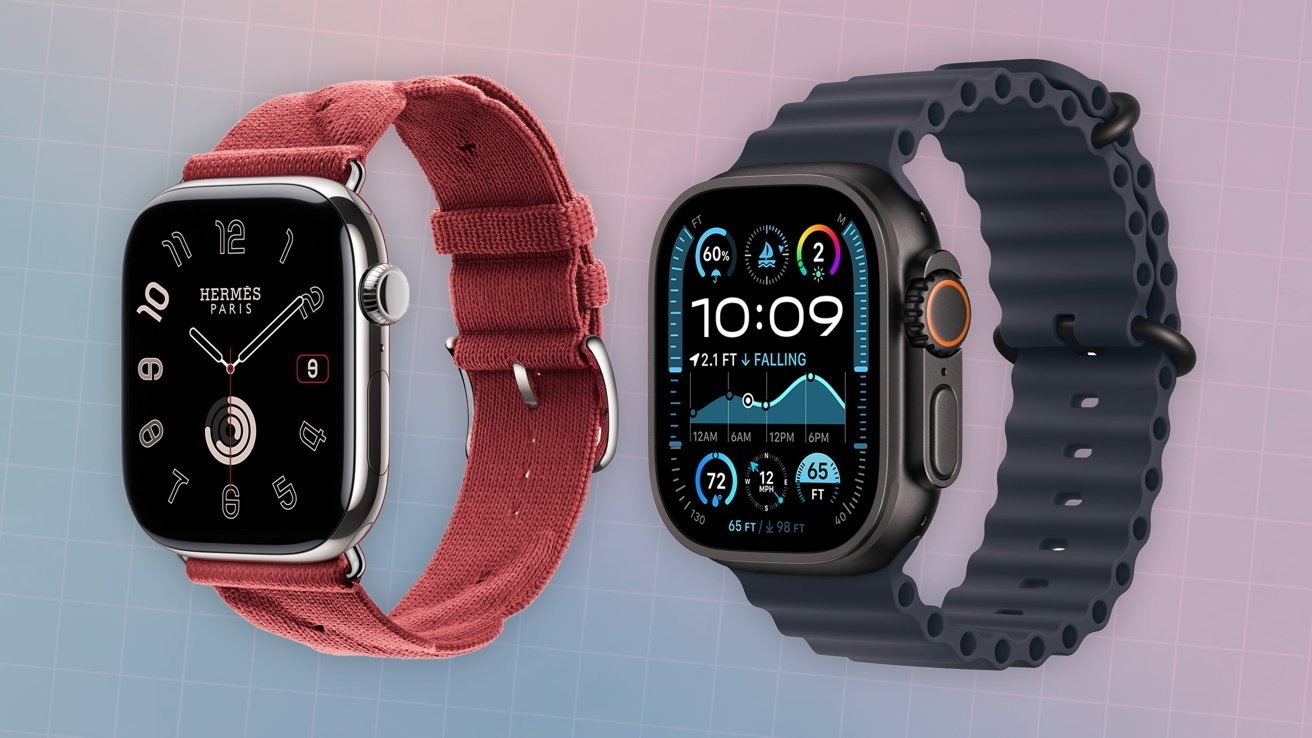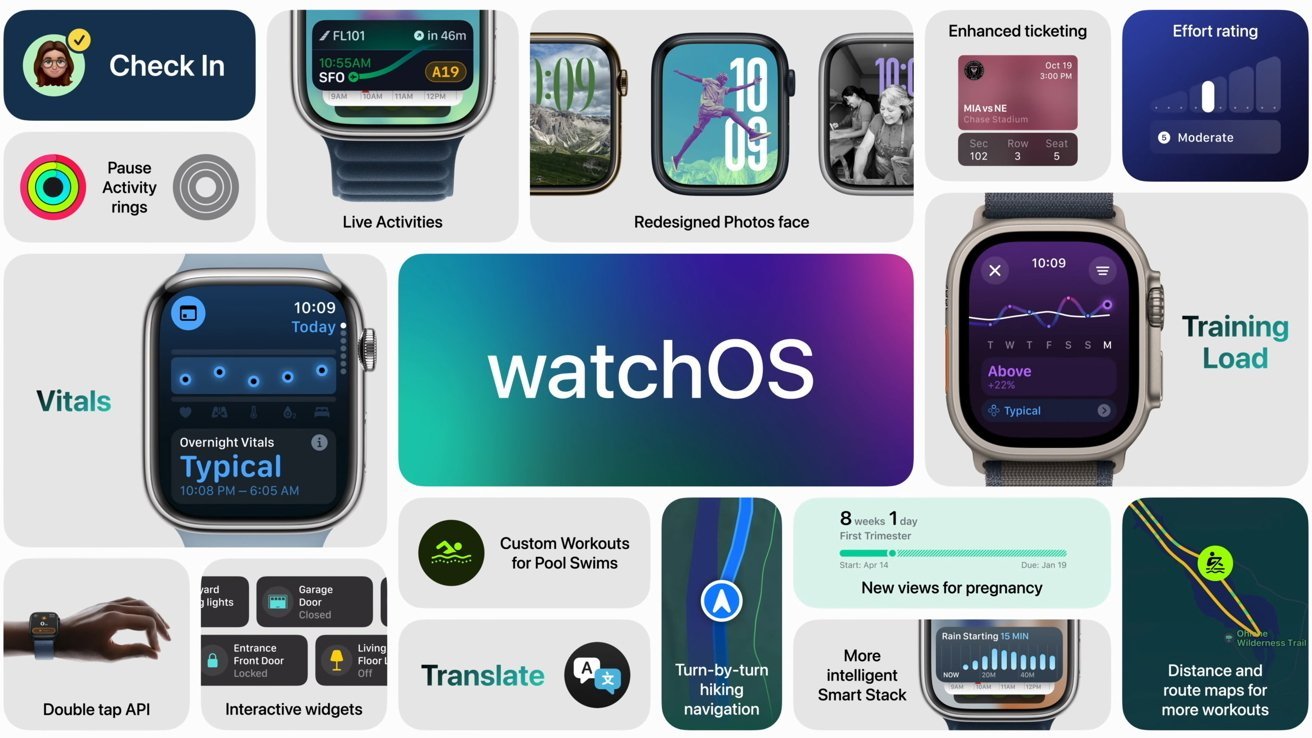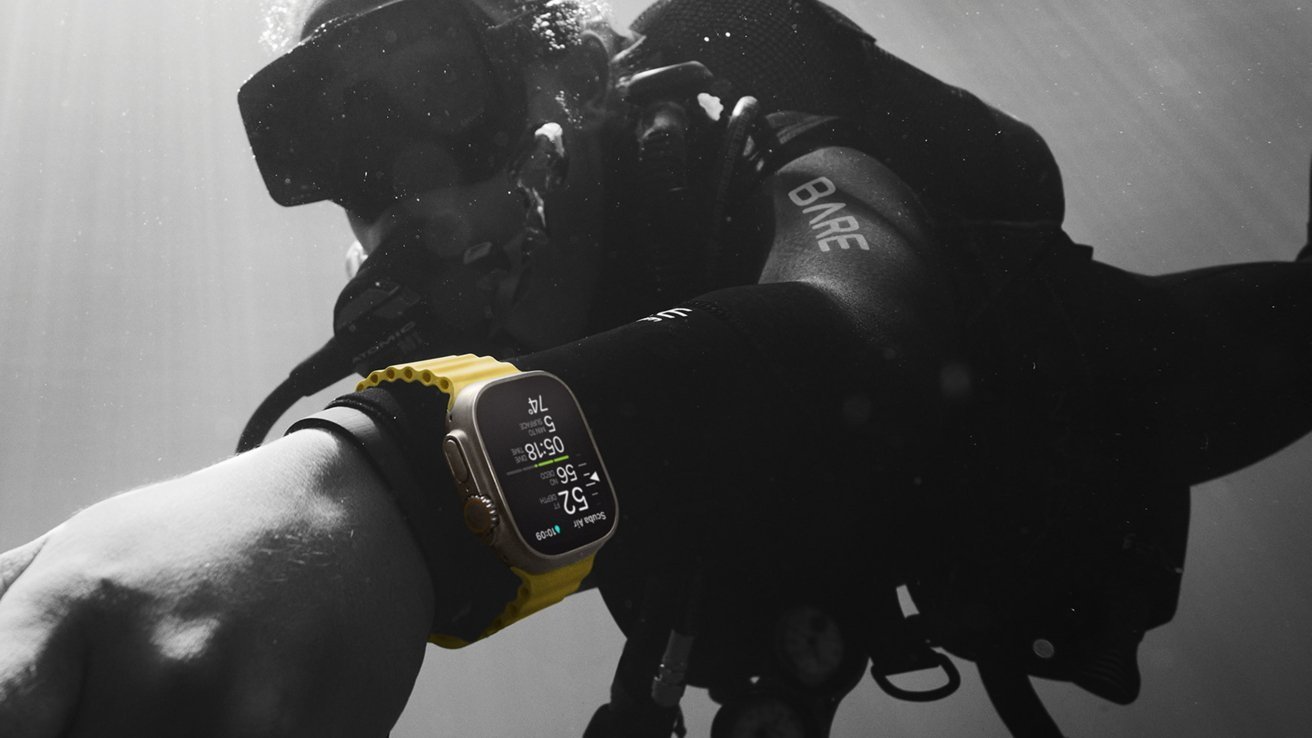In a new interview, a trio of Apple executives reflect on the Apple Watch Series 10 and how some of its original innovations came from influences outside the company.
The Apple Watch isn’t just the most popular digital wristwatch in the world: at 100 million sold as of 2021, it may be the best-selling watch of all time. While the analog watch industry is still enjoying strong sales catering to upscale markets and specialty users, the Apple Watch and its Android-based smartwatch rivals have become the wearable timepieces “for the rest of us.”
The interview, which appeared in the British edition of GQ magazine, noted that Jobs often scolded Apple executives to never dwell on past successes, and instead to always focus on the future. Eric Jue, director of Apple Watch product marketing, quoted Jobs as saying “if you do something great, you don’t spend a lot of time looking back.”
“We’re always exploring, always challenging ourselves and we’re not afraid of the new at all,” notes Apple’s Head of Human Interface Design, Alan Dye. “[The ongoing influence is] interesting to us because we love traditional analogue watches and most of us own them as well,” added Apple’s Head of Industrial Design, Molly Anderson.
The sum of its parts, plus watchOS
While the changes in the Apple Watch Series 10 may seem marginal to most reviewers, with its slightly-bigger screen but slightly-thinner casing, the small changes add up to a substantial upgrade. Not only is the new Apple Watch Series 10 noticeably lighter on your wrist, but it includes a new depth gauge of up to six meters (19.7 feet) for swimming and snorkeling.
The new larger screen allowed the team to re-think its use of the display for the first time. “We got so great at designing for a very small display, and that required real efficiency with every pixel,” says Dye. This time, they could allow the information displays a little more room, and add an additional line of text that wasn’t possible on earlier models.
Apple also switched its luxury casing material from stainless steel to titanium, making it 20 percent lighter than the Apple Watch Series 9. Apple also brought a new color to the Apple Watch Ultra 2 through what Anderson described as a “diamond-like carbon coating” that she noted was “is “even harder than the surface of natural titanium.”
Outside influences
Each of the executives says that the whole Apple Watch team not only draw inspiration from traditional wristwatches, but also from possibly surprising sources, such as the company’s longstanding relationship with French fashion accessory brand Hermes. When Hermes introduced a double-loop band for the Apple Watch, the design team was inspired to add some “selfish details” and whimsical touches to the product.
An example of the latter is the animated “Peanuts” watch face, or the winking “Lucky Horse” one. The team are equally devoted to presenting the Apple Watch as a premium product that can fit in at a weekend barbecue just as well as it does at a high-society event.
“I love seeing people walk the red carpet with it at film festivals,” said Dye. He noted seeing Idris Elba wearing one at an awards ceremony that matched his tuxedo.
The new “Reflections” Apple Watch face is yet another example of Apple paying attention to what sells well in non-digital watches. For example, the Apple Watch Series 10 can now be set to show the second hand moving.
This feature hadn’t been possible before, because the face didn’t refresh that frequently to save battery. The Apple Watch Series 10’s SIP allows the watch to refresh the face every second.
The new Reflections face is inspired by hand-carved guilloche dials found on high-end analog watches. Apple’s digital recreation relies on both the gyroscope and sensor to appear to “shimmer” along with the sunlight.
“We got obsessed with understanding where the object was in any place or time,” noted Dye, “and how we could actually cast reflections on it that feel like they come from the world around you.” Anderson concurred, saying the team try hard to “reflect our love for materiality and traditional horology, and so the romance in it is the idea that it’s a single piece of metal. It’s surprising how much [we] care about whimsy and joy.”
Diving into details
Sometimes, the team draw from their outside-work influences to help forge new ideas of what a wearable device can do. The first Apple Watch Ultra used its hardened and durable physical design to add features related to challenging fitness and sports-related activity.
“Molly and I are both divers,” said Jue. “We pushed pretty hard [for dive features and at-depth durability even though] Apple is not a dive company because we thought it was an incredible capability for Ultra.”
Anderson recalled that she was “very excited to see the Ultra on a dive boat somewhere just after we’d launched it.” With the Apple Watch Series 10, a limited version of that functionality has been brought to the regular Apple Watch through the depth gauge.
Apple has also dipped back into the Apple Watch’s past to rethink and re-introduce the link bracelet ($349) with three new colors. The company also debuted six all-new bands including a Titanium Milanese Loop in Natural or Black titanium exclusively for the Apple Watch Ultra ($199), as well as new colors for many existing bands.


